Abstract:
This article aims at analyzing and designing the multivalued high-capacity-associative memories based on recurrent neural networks with both asynchronous and distributed ...Show MoreMetadata
Abstract:
This article aims at analyzing and designing the multivalued high-capacity-associative memories based on recurrent neural networks with both asynchronous and distributed delays. In order to increase storage capacities, multivalued activation functions are introduced into associative memories. The stored patterns are retrieved by external input vectors instead of initial conditions, which can guarantee accurate associative memories by avoiding spurious equilibrium points. Some sufficient conditions are proposed to ensure the existence, uniqueness, and global exponential stability of the equilibrium point of neural networks with mixed delays. For neural networks with {n} neurons, {m} -dimensional input vectors, and {2k} -valued activation functions, the autoassociative memories have {(2k)^{n}} storage capacities and heteroassociative memories have min {\{(2k)^{n},(2k)^{m}\}} storage capacities. That is, the storage capacities of designed associative memories in this article are obviously higher than the {2^{n}} and min {\{2^{n},2^{m}\}} storage capacities of the conventional ones. Three examples are given to support the theoretical results.
Published in: IEEE Transactions on Cybernetics ( Volume: 52, Issue: 12, December 2022)
Funding Agency:
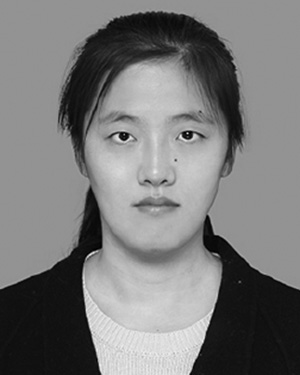
School of Mathematics, China University of Mining and Technology, Xuzhou, China
Jiahui Zhang was born in 1993. She received the B.Admin. degree in information management and information system from Changan University, Xi’an, China, in 2015. She is currently pursuing the M.S. degree in operational research and cybernetics with the China University of Mining and Technology, Xuzhou, China.
Her current research interests include neural networks and stochastic control.
Jiahui Zhang was born in 1993. She received the B.Admin. degree in information management and information system from Changan University, Xi’an, China, in 2015. She is currently pursuing the M.S. degree in operational research and cybernetics with the China University of Mining and Technology, Xuzhou, China.
Her current research interests include neural networks and stochastic control.View more
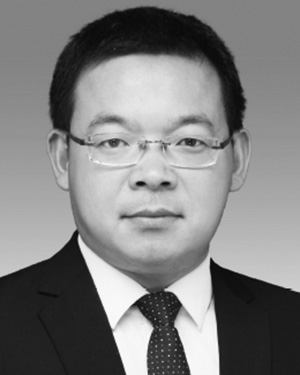
School of Mathematics, China University of Mining and Technology, Xuzhou, China
Song Zhu was born in 1982. He received the B.S. degree in mathematics from Jiangsu Normal University, Xuzhou, China, in 2004, and the M.S. degree in probability and mathematical statistics and the Ph.D. degree in system engineering from the Huazhong University of Science and Technology, Wuhan, China, in 2007 and 2010, respectively.
He is currently a Professor with the School of Mathematics, China University of Mining and T...Show More
Song Zhu was born in 1982. He received the B.S. degree in mathematics from Jiangsu Normal University, Xuzhou, China, in 2004, and the M.S. degree in probability and mathematical statistics and the Ph.D. degree in system engineering from the Huazhong University of Science and Technology, Wuhan, China, in 2007 and 2010, respectively.
He is currently a Professor with the School of Mathematics, China University of Mining and T...View more
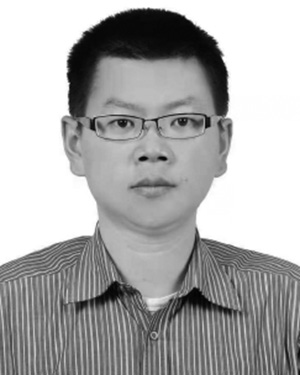
School of Hubei Key Laboratory of Cascaded Hydropower Stations Operation and Control, China Three Gorges University, Yichang, China
Gang Bao received the B.S. degree in mathematics from Hubei Normal University, Huangshi, China, in 2000, the M.S. degree in applied mathematics from the Beijing University of Technology, Beijing, China, in 2004, and the Ph.D. degree from the Department of Control Science and Engineering, Huazhong University of Science and Technology, Wuhan, China, in 2012.
He is currently working with the Hubei Key Laboratory of Cascaded H...Show More
Gang Bao received the B.S. degree in mathematics from Hubei Normal University, Huangshi, China, in 2000, the M.S. degree in applied mathematics from the Beijing University of Technology, Beijing, China, in 2004, and the Ph.D. degree from the Department of Control Science and Engineering, Huazhong University of Science and Technology, Wuhan, China, in 2012.
He is currently working with the Hubei Key Laboratory of Cascaded H...View more
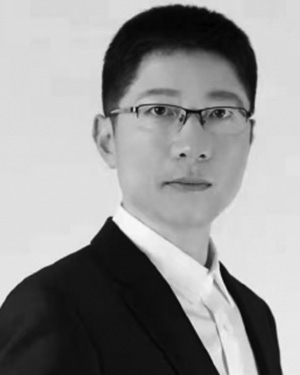
School of Computer Science and Technology, Jiangsu Normal University, Xuzhou, China
Xiaoyang Liu received the M.S. and Ph.D. degrees in applied mathematics from the Department of Mathematics, Southeast University, Nanjing, China, in 2008 and 2011, respectively.
He was a Postdoctoral Fellow with the Department of Mechanical Engineering, University of Hong Kong, Hong Kong, from 2011 to 2012. He is currently a Professor with the School of Computer Science and Technology, Jiangsu Normal University, Xuzhou, Ch...Show More
Xiaoyang Liu received the M.S. and Ph.D. degrees in applied mathematics from the Department of Mathematics, Southeast University, Nanjing, China, in 2008 and 2011, respectively.
He was a Postdoctoral Fellow with the Department of Mechanical Engineering, University of Hong Kong, Hong Kong, from 2011 to 2012. He is currently a Professor with the School of Computer Science and Technology, Jiangsu Normal University, Xuzhou, Ch...View more
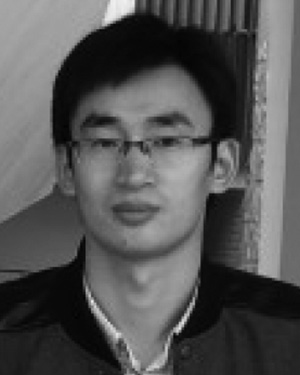
Centre for Artificial Intelligence, University of Technology Sydney, Ultimo, NSW, Australia
Shiping Wen received the M.Eng. degree in control science and engineering from the School of Automation, Wuhan University of Technology, Wuhan, China, in 2010, and the Ph.D. degree in control science and engineering from the School of Automation, Huazhong University of Science and Technology, Wuhan, in 2013.
He is currently a Professor with the Australian AI Institute, Faculty of Engineering and Information Technology, Uni...Show More
Shiping Wen received the M.Eng. degree in control science and engineering from the School of Automation, Wuhan University of Technology, Wuhan, China, in 2010, and the Ph.D. degree in control science and engineering from the School of Automation, Huazhong University of Science and Technology, Wuhan, in 2013.
He is currently a Professor with the Australian AI Institute, Faculty of Engineering and Information Technology, Uni...View more

School of Mathematics, China University of Mining and Technology, Xuzhou, China
Jiahui Zhang was born in 1993. She received the B.Admin. degree in information management and information system from Changan University, Xi’an, China, in 2015. She is currently pursuing the M.S. degree in operational research and cybernetics with the China University of Mining and Technology, Xuzhou, China.
Her current research interests include neural networks and stochastic control.
Jiahui Zhang was born in 1993. She received the B.Admin. degree in information management and information system from Changan University, Xi’an, China, in 2015. She is currently pursuing the M.S. degree in operational research and cybernetics with the China University of Mining and Technology, Xuzhou, China.
Her current research interests include neural networks and stochastic control.View more

School of Mathematics, China University of Mining and Technology, Xuzhou, China
Song Zhu was born in 1982. He received the B.S. degree in mathematics from Jiangsu Normal University, Xuzhou, China, in 2004, and the M.S. degree in probability and mathematical statistics and the Ph.D. degree in system engineering from the Huazhong University of Science and Technology, Wuhan, China, in 2007 and 2010, respectively.
He is currently a Professor with the School of Mathematics, China University of Mining and Technology, Xuzhou. He has published over 60 international journal papers. His current research interests bioadjust include neural networks and stochastic control.
Song Zhu was born in 1982. He received the B.S. degree in mathematics from Jiangsu Normal University, Xuzhou, China, in 2004, and the M.S. degree in probability and mathematical statistics and the Ph.D. degree in system engineering from the Huazhong University of Science and Technology, Wuhan, China, in 2007 and 2010, respectively.
He is currently a Professor with the School of Mathematics, China University of Mining and Technology, Xuzhou. He has published over 60 international journal papers. His current research interests bioadjust include neural networks and stochastic control.View more

School of Hubei Key Laboratory of Cascaded Hydropower Stations Operation and Control, China Three Gorges University, Yichang, China
Gang Bao received the B.S. degree in mathematics from Hubei Normal University, Huangshi, China, in 2000, the M.S. degree in applied mathematics from the Beijing University of Technology, Beijing, China, in 2004, and the Ph.D. degree from the Department of Control Science and Engineering, Huazhong University of Science and Technology, Wuhan, China, in 2012.
He is currently working with the Hubei Key Laboratory of Cascaded Hydropower Stations Operation and Control Electrical Engineering and New Energy School, China Three Gorges University, Yichang, China. His research interest includes neural networks stability theory, deep learning, and reinforcement learning.
Gang Bao received the B.S. degree in mathematics from Hubei Normal University, Huangshi, China, in 2000, the M.S. degree in applied mathematics from the Beijing University of Technology, Beijing, China, in 2004, and the Ph.D. degree from the Department of Control Science and Engineering, Huazhong University of Science and Technology, Wuhan, China, in 2012.
He is currently working with the Hubei Key Laboratory of Cascaded Hydropower Stations Operation and Control Electrical Engineering and New Energy School, China Three Gorges University, Yichang, China. His research interest includes neural networks stability theory, deep learning, and reinforcement learning.View more

School of Computer Science and Technology, Jiangsu Normal University, Xuzhou, China
Xiaoyang Liu received the M.S. and Ph.D. degrees in applied mathematics from the Department of Mathematics, Southeast University, Nanjing, China, in 2008 and 2011, respectively.
He was a Postdoctoral Fellow with the Department of Mechanical Engineering, University of Hong Kong, Hong Kong, from 2011 to 2012. He is currently a Professor with the School of Computer Science and Technology, Jiangsu Normal University, Xuzhou, China. He held several visiting positions in Hong Kong and South Korea. He has authored or coauthored about 20 referred international journal papers, and a reviewer of several journals. His research interests include neural networks, discontinuous systems, consensus problem, multiagent systems, and complex networks.
Dr. Liu is the recipient of the First Doctoral Academic New People Awards for Ministry of Education, China.
Xiaoyang Liu received the M.S. and Ph.D. degrees in applied mathematics from the Department of Mathematics, Southeast University, Nanjing, China, in 2008 and 2011, respectively.
He was a Postdoctoral Fellow with the Department of Mechanical Engineering, University of Hong Kong, Hong Kong, from 2011 to 2012. He is currently a Professor with the School of Computer Science and Technology, Jiangsu Normal University, Xuzhou, China. He held several visiting positions in Hong Kong and South Korea. He has authored or coauthored about 20 referred international journal papers, and a reviewer of several journals. His research interests include neural networks, discontinuous systems, consensus problem, multiagent systems, and complex networks.
Dr. Liu is the recipient of the First Doctoral Academic New People Awards for Ministry of Education, China.View more

Centre for Artificial Intelligence, University of Technology Sydney, Ultimo, NSW, Australia
Shiping Wen received the M.Eng. degree in control science and engineering from the School of Automation, Wuhan University of Technology, Wuhan, China, in 2010, and the Ph.D. degree in control science and engineering from the School of Automation, Huazhong University of Science and Technology, Wuhan, in 2013.
He is currently a Professor with the Australian AI Institute, Faculty of Engineering and Information Technology, University of Technology Sydney, Ultimo, NSW, Australia. His current research interests include memristor-based circuits and systems, neural networks, and deep learning.
Dr. Wen serves as an Associate Editor for the IEEE Access and Neural Processing Letters.
Shiping Wen received the M.Eng. degree in control science and engineering from the School of Automation, Wuhan University of Technology, Wuhan, China, in 2010, and the Ph.D. degree in control science and engineering from the School of Automation, Huazhong University of Science and Technology, Wuhan, in 2013.
He is currently a Professor with the Australian AI Institute, Faculty of Engineering and Information Technology, University of Technology Sydney, Ultimo, NSW, Australia. His current research interests include memristor-based circuits and systems, neural networks, and deep learning.
Dr. Wen serves as an Associate Editor for the IEEE Access and Neural Processing Letters.View more


